EASTER SUNDAY ATTACK
The Easter Sunday Tragedy – April 21, 2019
On the morning of April 21, 2019, as the congregation of St. Sebastian’s Church in Katuwapitiya gathered to celebrate Easter Sunday — the holiest day in the Christian calendar — a devastating act of terror shook our community to its very core.
The church, filled with faithful men, women, and children, was offering prayers of hope and thanksgiving, rejoicing in the Resurrection of Jesus Christ. But at approximately 8:45 a.m., during the Easter Mass, an assailant carrying explosives entered the sacred sanctuary and unleashed an unspeakable act of violence.

The bomb exploded with horrific force, instantly claiming the lives of more than 100 innocent worshippers and wounding over 280 others. Among those killed were entire families, young children in their Sunday best, elderly parishioners, and those who had come simply to celebrate life and renewal. The main altar was heavily damaged, sacred statues and stained-glass windows were shattered, and the air was filled with smoke, sorrow, and disbelief.
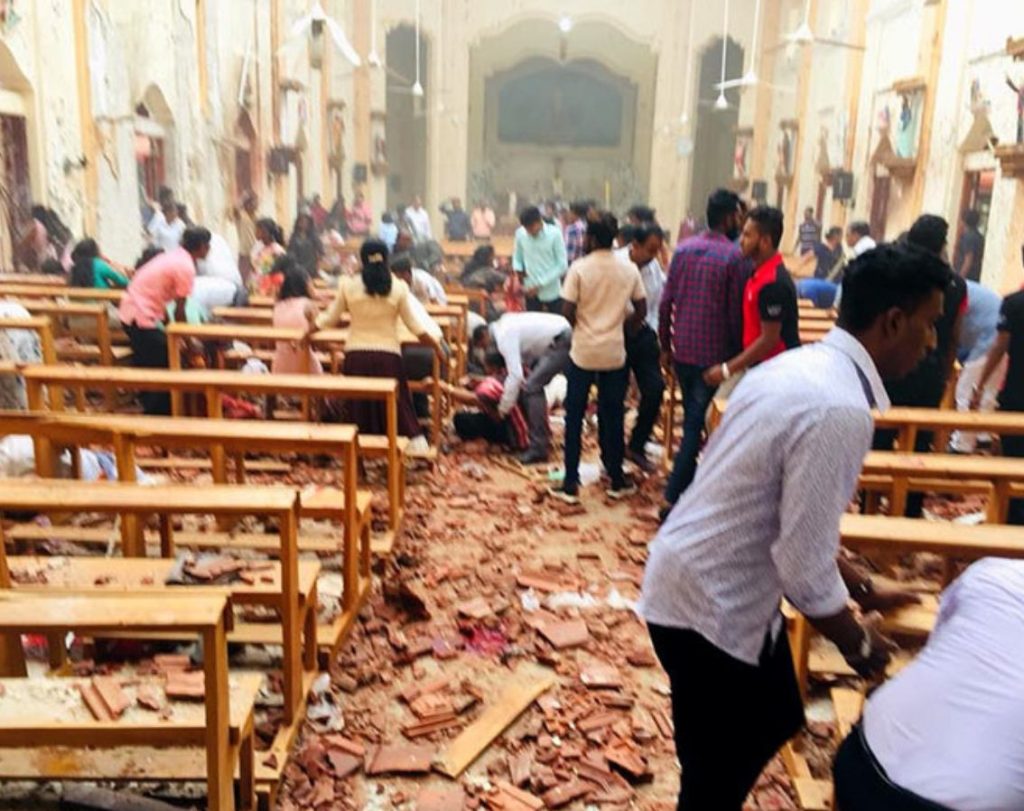
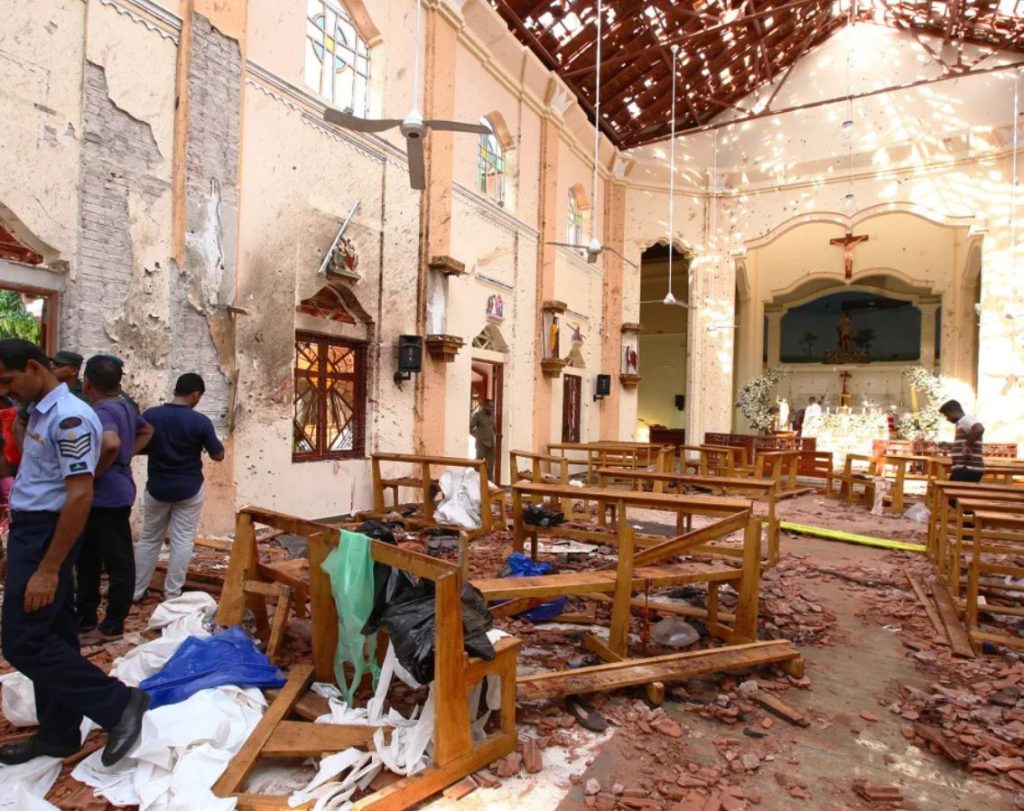
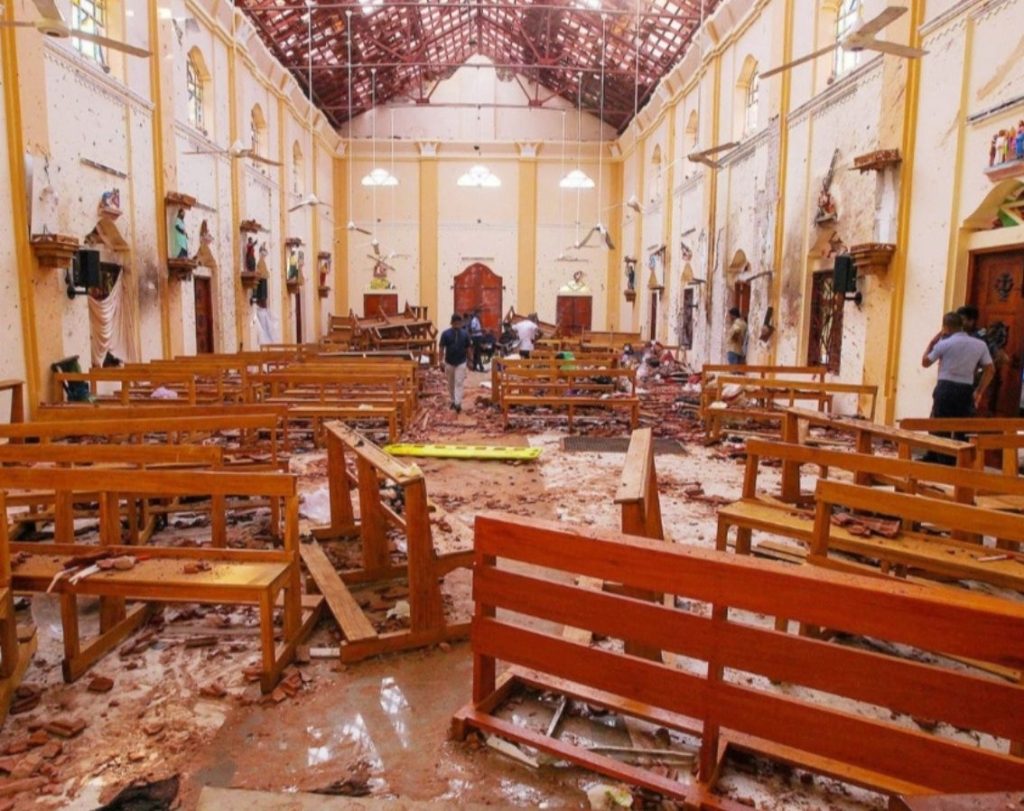
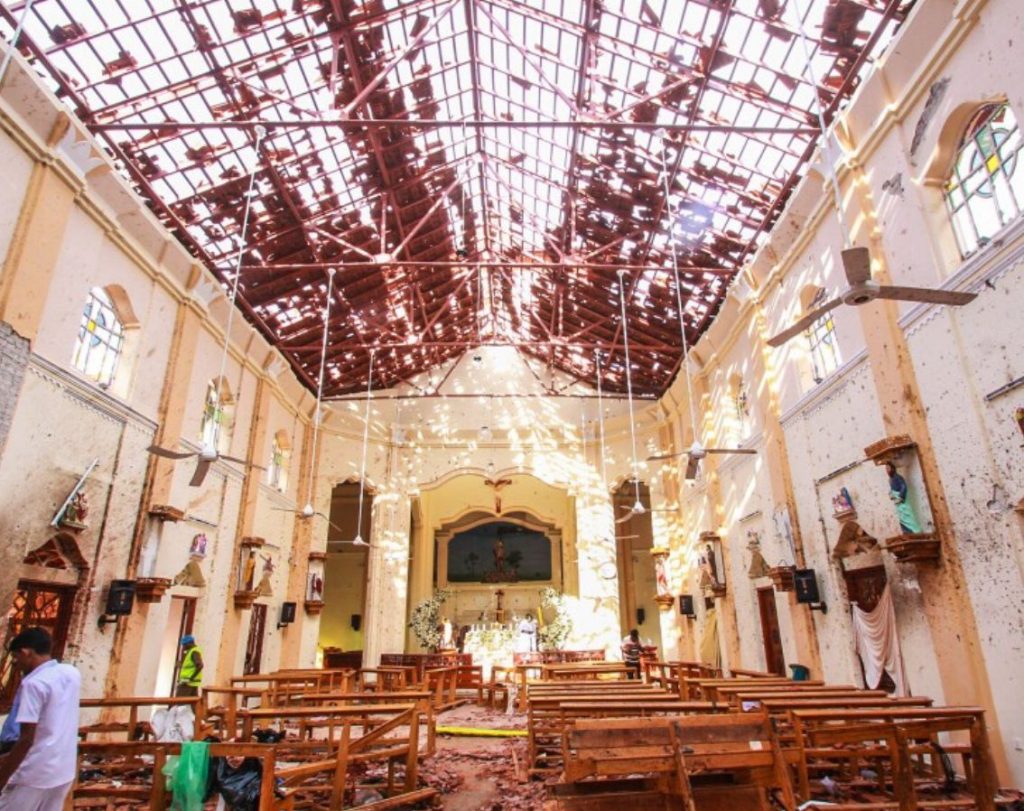
The Immediate Aftermath
Chaos and grief engulfed Katuwapitiya within minutes. Survivors rushed to help the wounded, using their bare hands to pull loved ones and strangers from the rubble.
Paramedics, volunteers, priests, and local residents worked together in a desperate race against time to save as many lives as possible.
Within hours, news of the attack spread across Sri Lanka and around the world. St. Sebastian’s Church became one of the central symbols of the Easter Sunday Bombings, a series of coordinated attacks targeting churches and hotels across the country.
Across Negombo, homes were plunged into mourning. In many families, more than one life was lost. A deep and personal grief gripped the entire city — and the nation.
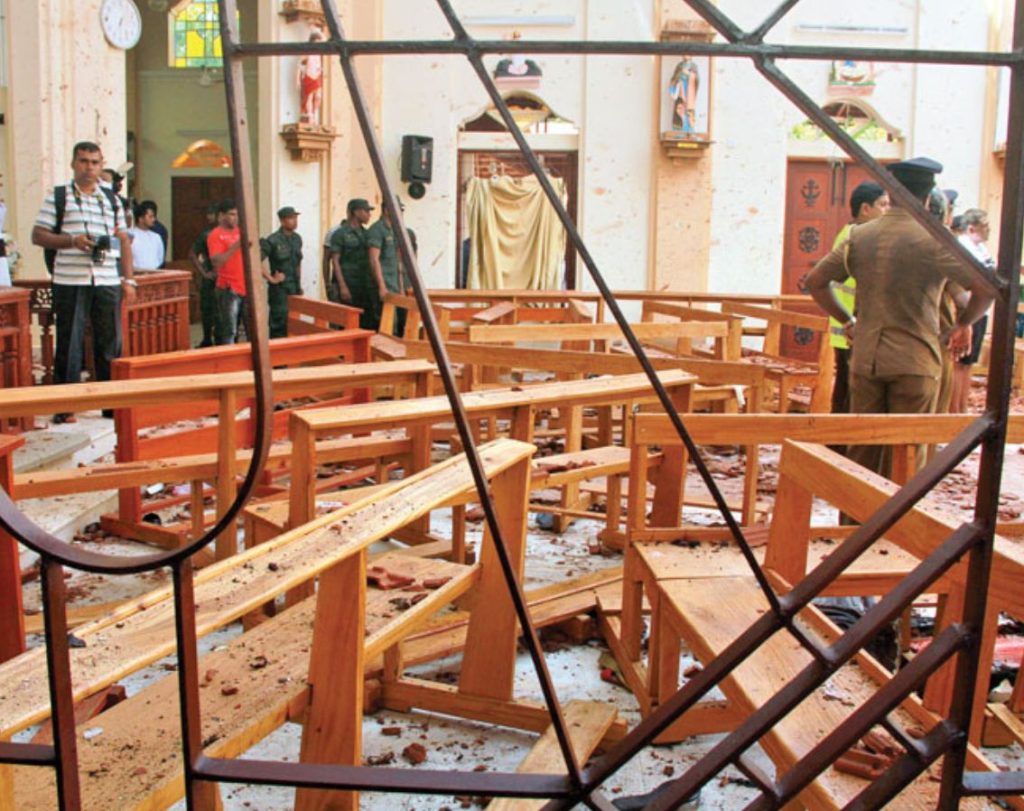
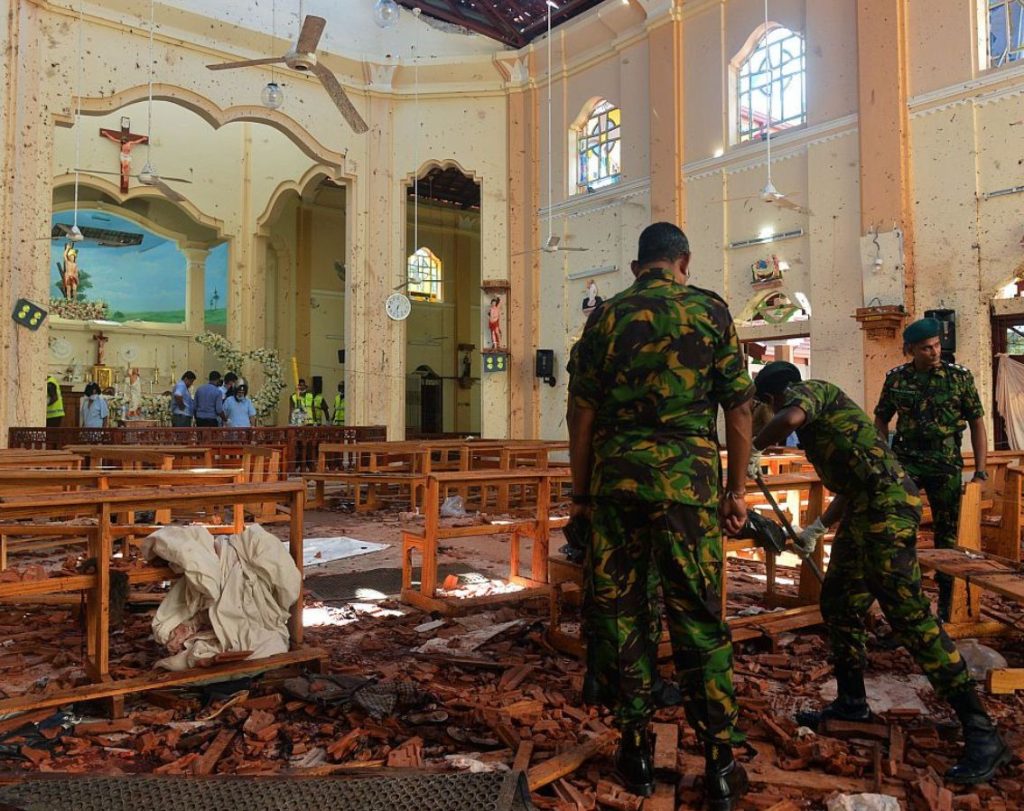
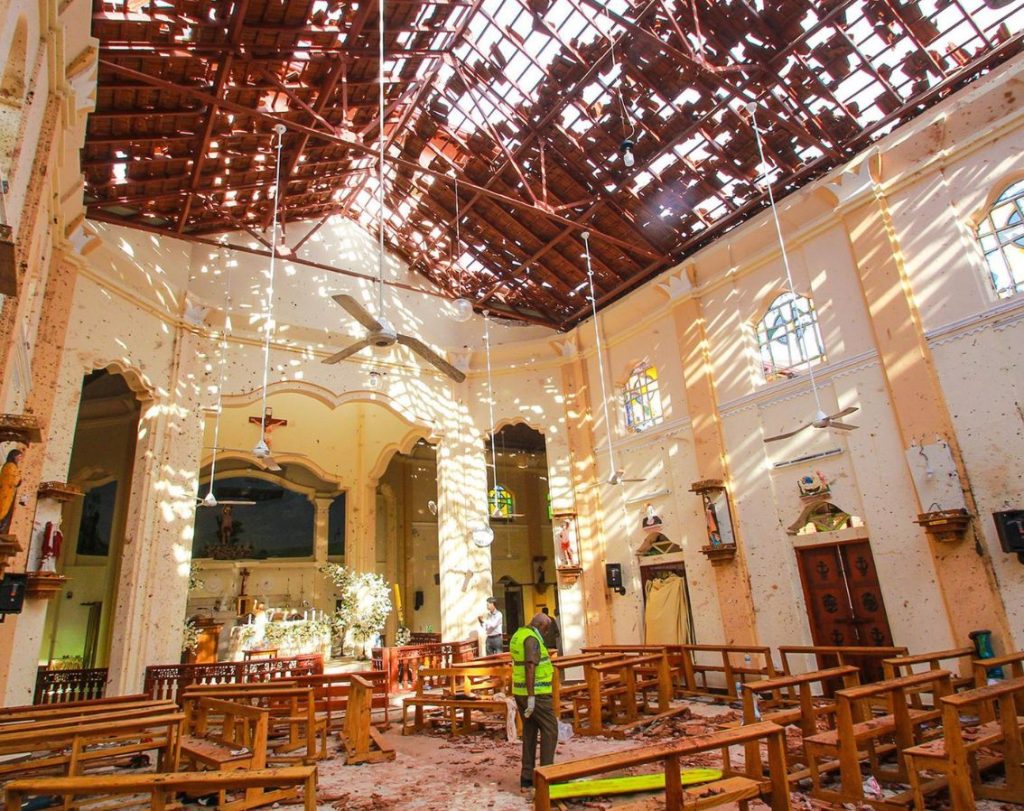
A Community United in Faith
Despite the unimaginable pain, faith did not die within the walls of St. Sebastian’s Church that day.
In the days following the attack:
Thousands gathered for vigils and prayer services.
Interfaith leaders, politicians, and citizens of every background came together to offer condolences.
Messages of solidarity and support poured in from across the globe.
The parish leadership, especially the then-parish priest Rev. Fr. Jude Fernando, called for calm, forgiveness, and prayer. Instead of responding with hatred or revenge, the people of Katuwapitiya chose the path of peace, following the teachings of Christ, who in his own suffering on the Cross, taught us to forgive.
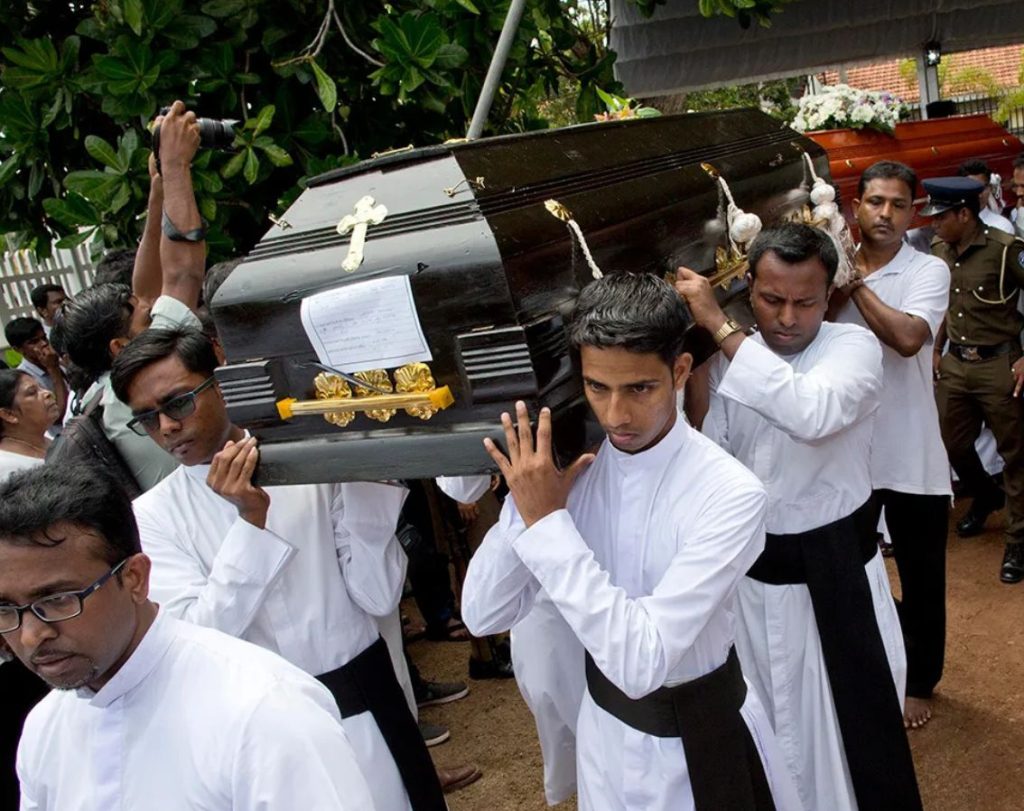
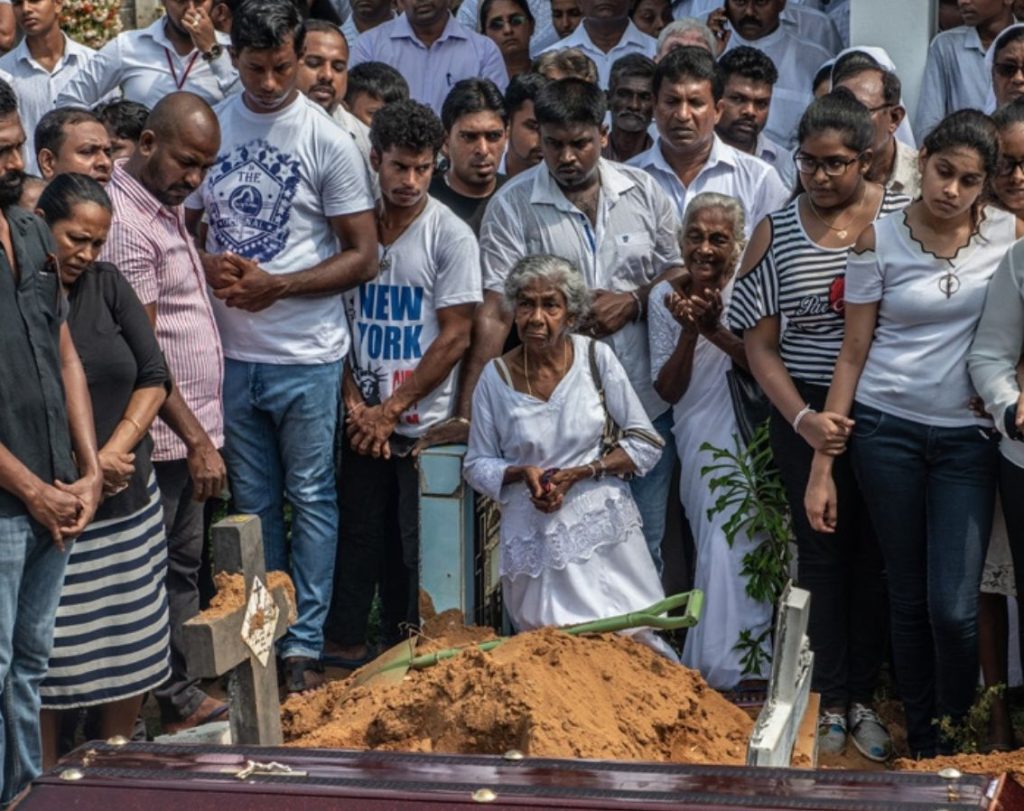
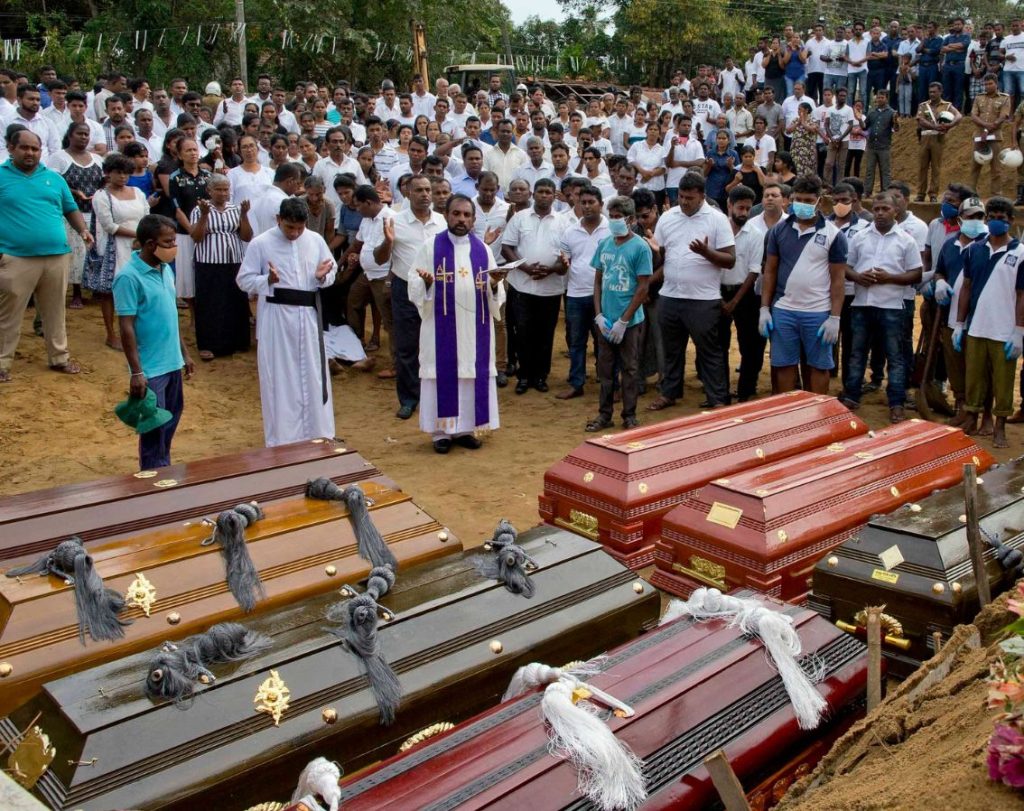

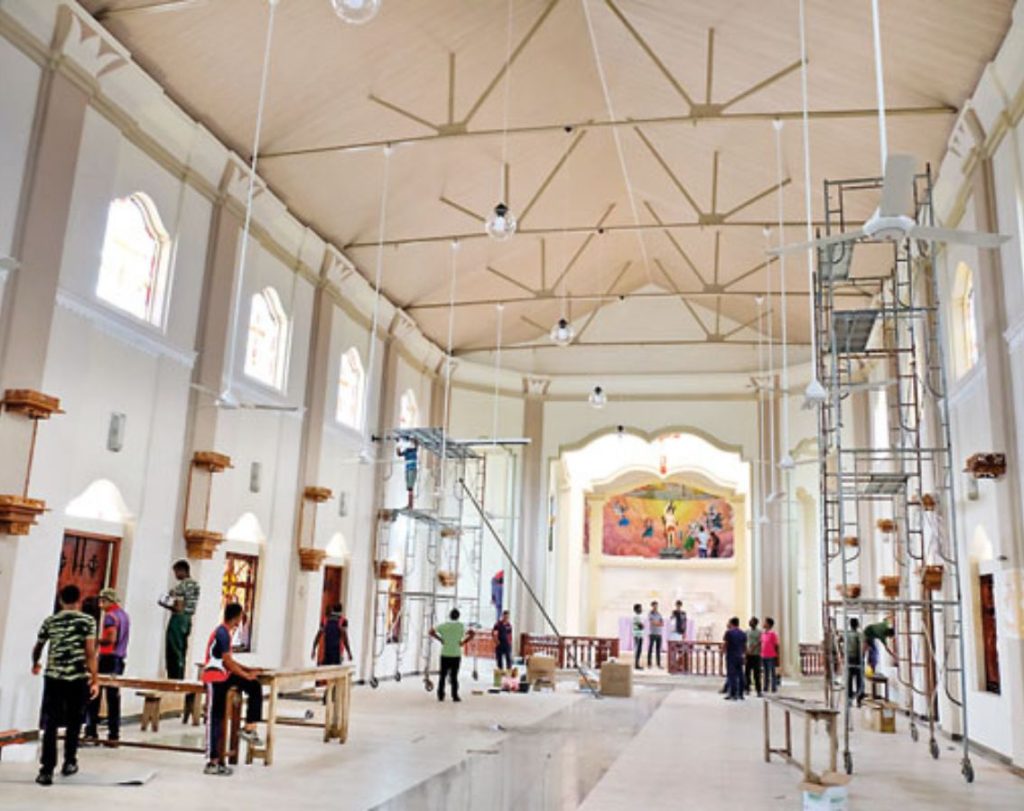
Rebuilding St. Sebastian’s Church
Determined to rise from the ashes of tragedy, the parish community immediately began planning the restoration of the church. Supported by donations from local and international well-wishers, and driven by a collective spirit of healing, the reconstruction work was carried out with dedication and love.
Less than a year later, the rebuilt St. Sebastian’s Church stood tall — not only as a physical structure but as a powerful symbol of resilience, hope, and resurrection.
New memorials, including plaques bearing the names of the deceased, were installed to ensure that the memory of those lost would forever remain in the heart of the church.
The rebuilt altar, new stained glass windows, and restored interiors speak to the triumph of faith over terror, and love over hatred.
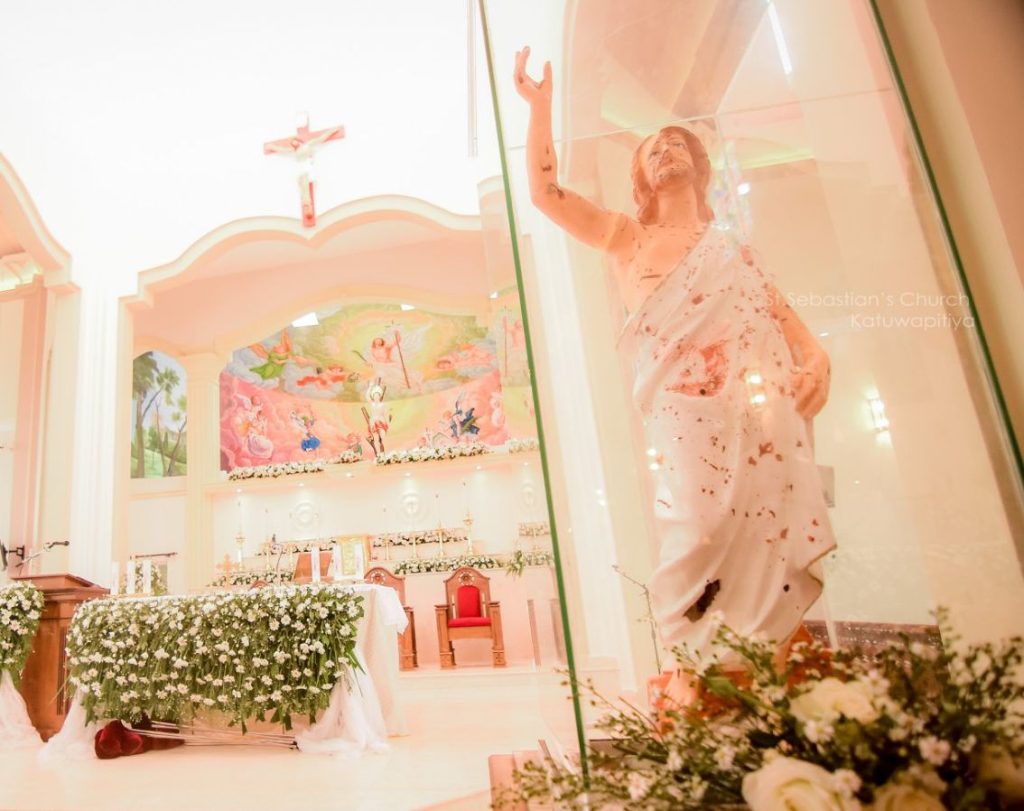
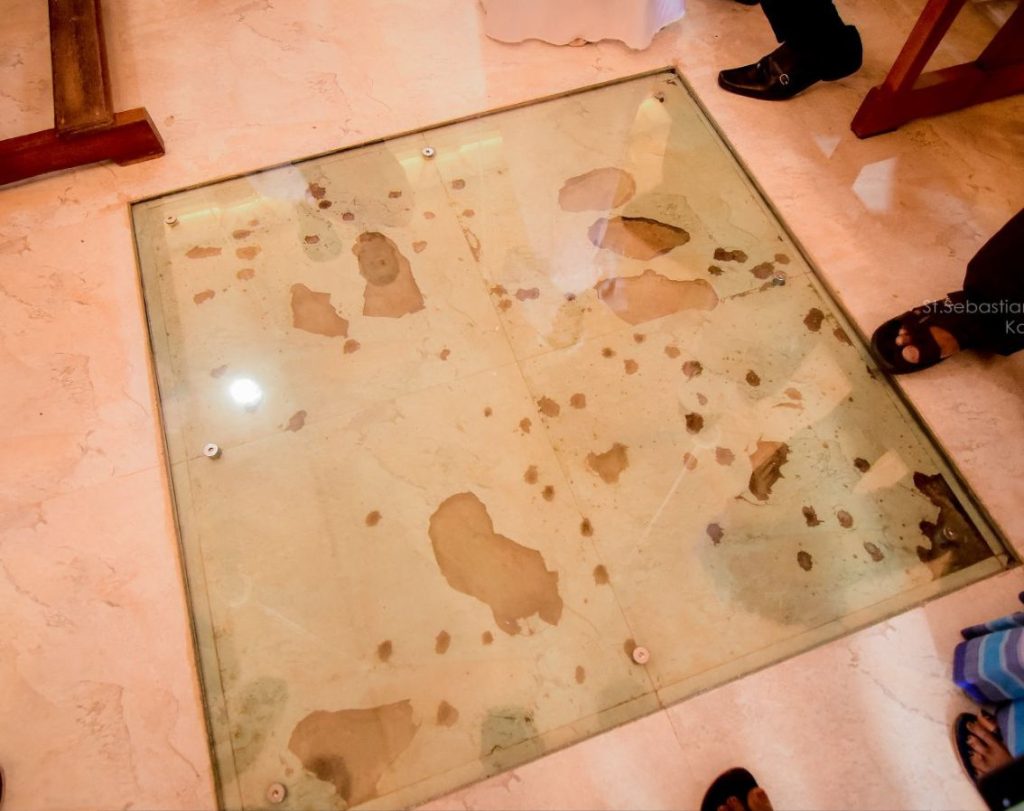
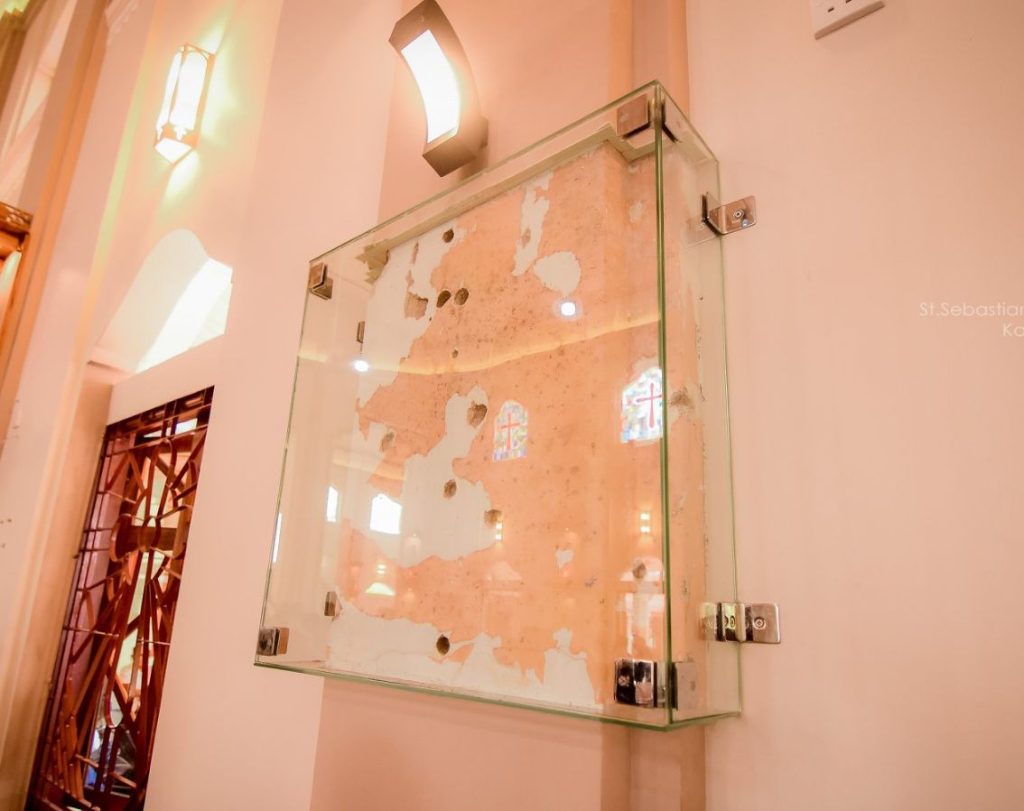
Remembering the Victims
Every year, special memorial masses are celebrated at St. Sebastian’s Church to honor the victims. Families gather to light candles, lay flowers, and pray for their beloved ones who are now seen as martyrs of the Christian faith.
Special prayer services, exhibitions, and silent processions ensure that their sacrifice is never forgotten.
In our hearts, they live on — and every Mass, every prayer, every hymn echoes with their memory.
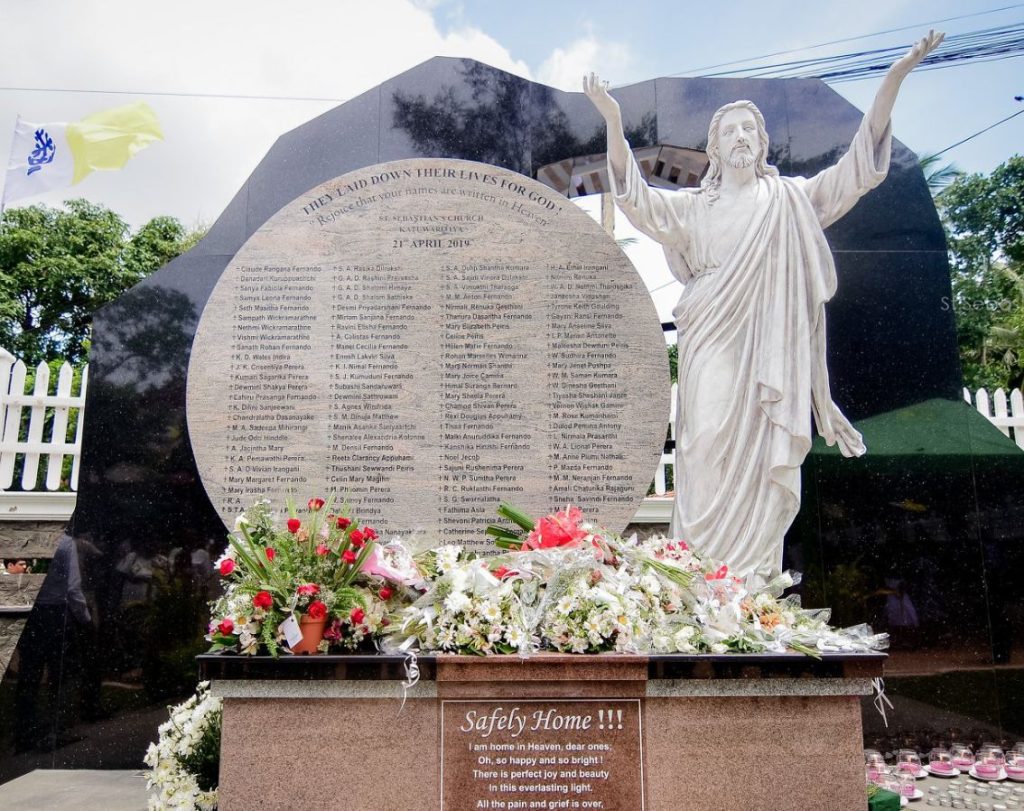
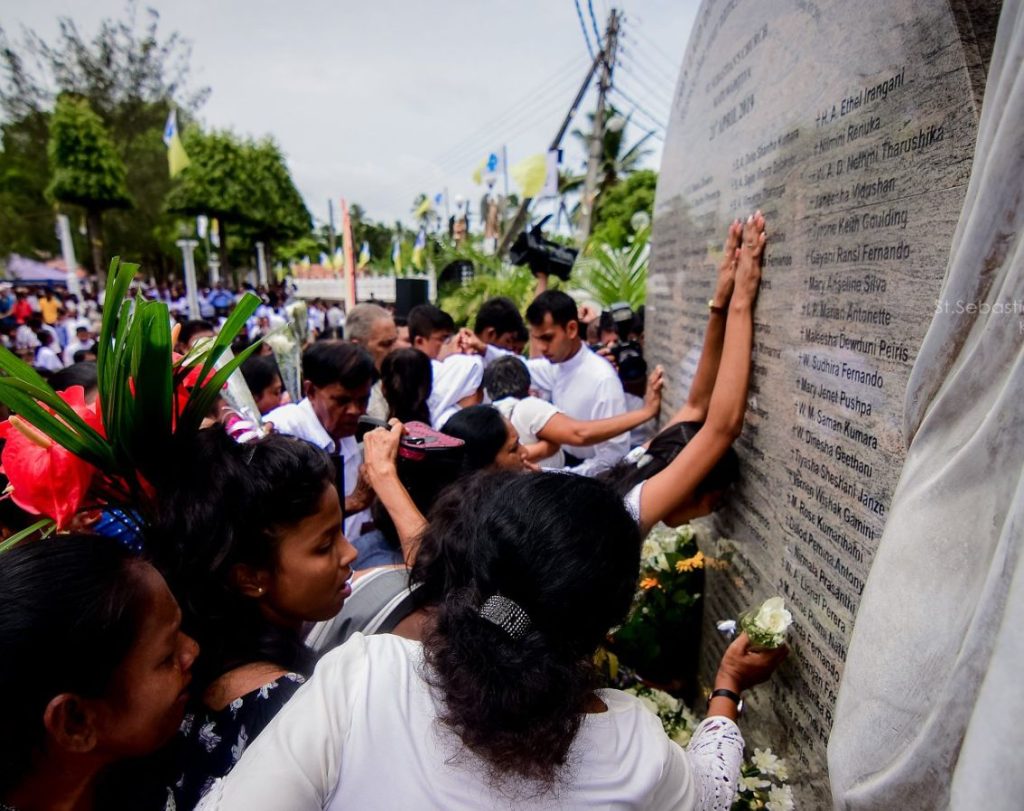
Talk to us
We’re here to listen, support, and guide you. Whether you have a prayer request, need spiritual assistance, or simply wish to connect with our parish, feel free to reach out. The doors of St. Sebastian’s Church are always open to you — let’s walk this journey of faith together.
